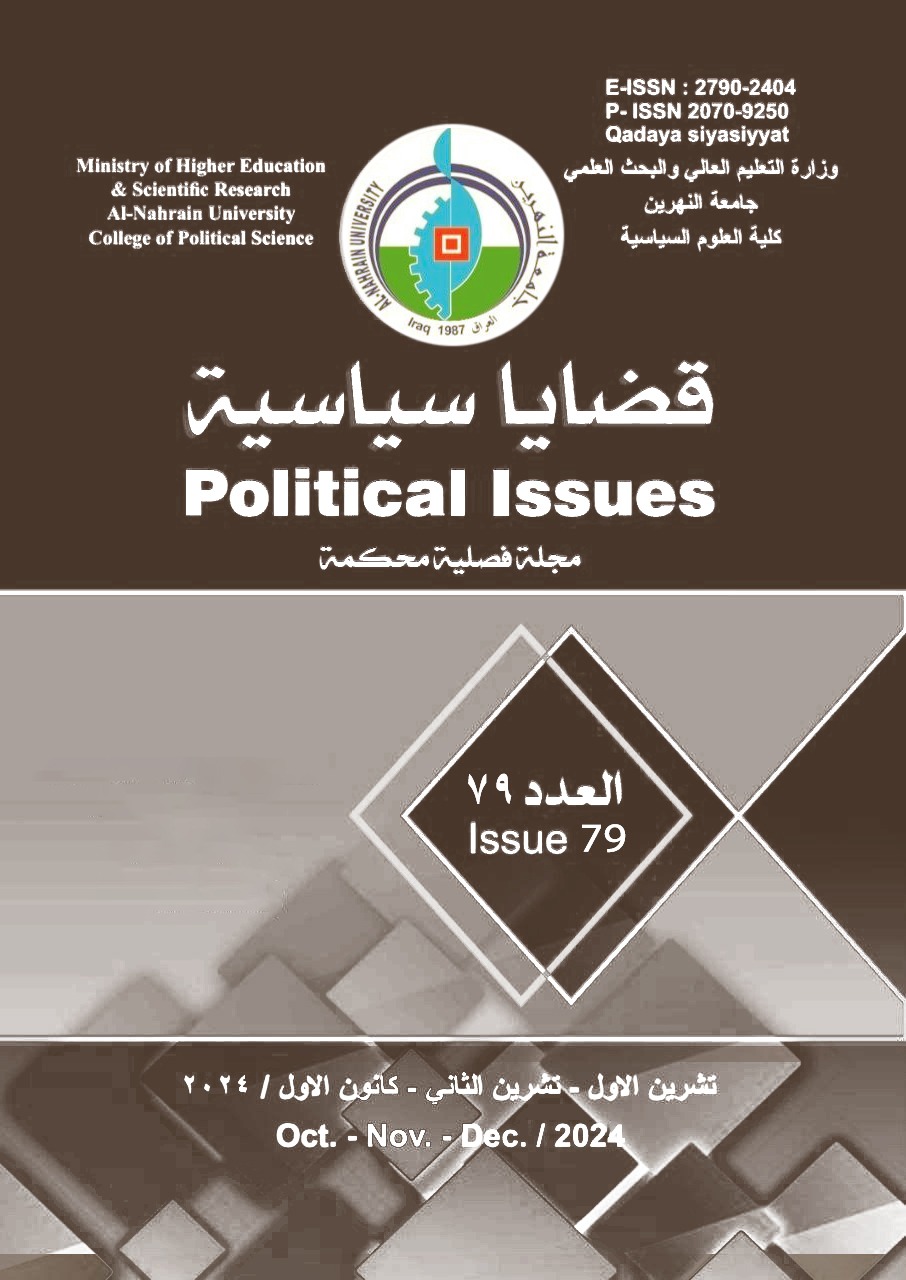The Individual Self and its Relation to Group Identity Between Liberal and Communitarian Perspectives
DOI:
https://doi.org/10.58298/792024646Keywords:
Individualism, Self, Liberalism, Autonomy, Identity, Common Good, Value CommitmentsAbstract
Liberal values as being the intellectual reference of the nation-state, ensure a societal and political environment that encourages individuals to care more about their basic rights, individual identities and differences, as each is preoccupied with his individual privateness and his unencumbered self. Through this approach, communitarians confirm that the continual concentration of liberalism on the unsociological- self significance away from its social ends and value commitments, also ignoring the importance of restraining the self and controlling its evils, in addition to making the common good and those commitments part of the private sphere, not the public sphere, will inevitably lead to dismantle both the relationships of the individual and the society, thus expanding the scope of the crisis of legitimacy instead of building a comprehensive and cohesive national identity that brings together the individual and the society in one place.
References
Donald M. Borchert (ed.), Encyclopedia of philosophy, Vol. 2, Thomson Gale, Detroit, 2d. ed., 2006.
19- Paul Barry Clarke & Joe Foweraker (edrs.), Encyclopedia of democratic thought, Routledge, London, 2001.
B- Books:
20- Andrew Heywood, Political theory: an introduction, Palgrave Macmillan, (3rd. ed.), New York, 2004.
21- Brian Barry, culture and equality: an egalitarian critique of multiculturalism, polity Press, Cambridge, 4th. ed., 2005.
22- Geoffrey Thomas, Introduction to political philosophy, Gerald Duckworth and Co. LTd., London, 2000.
23- John Christman, Social and Political Philosophy: a contemporary introduction, Routledge, London, 2002.
24- John Hoffman & Paul Graham, Introduction to political ideologies, Pearson Education Limited, England, 2006.
25- Robert C. Solomon, Continental philosophy since 1750: the rise and fall of the self, Oxford University Press, Oxford, 1988.
26- Thomas Hylland Eriksen, Ethnicity and nationalism: anthropological perspectives, Pluto Press, 3d. ed., London, 2010.
27- Will Kymlicka, Contemporary political philosophy: an introduction, Oxford University Press, Oxford, 2d. ed., 2002.
28- Will Kymlicka, Liberalism, community and culture, Oxford University Press, Oxford, 1989.
29- Will Kymlicka, Multicultural citizenship: a liberal theory of minority rights, Oxford University Press, Oxford, 1995.
C- Periodicals and Studies:
30- Alasdair MacIntyre, “The Virtue: the unity of a human life and the concept of a tradition”, in, Michael J. Sandel (ed.), Liberalism and its critics, New York University Press, New York, 1992.
31- Amitai Etzioni, “Communitarianism”, in, Encyclopedia of Sociology, from web site: [https://www.encyclopedia.com/social-sciences-and-law/sociology-and-social-reform/sociology-general-terms-and-concepts/communitarianism], 2-1- 2023.
32- Andrew Mason, “Communitarianism and its legacy”, in, Noël O’Sullivan (ed.), Political theory in transition, Routledge, London, 2000.
33- Charles Taylor, "The Politics of recognition", in, David Theo Goldberg (ed.), Multiculturalism: a critical reader, Basil Blackwell Ltd., Oxford, 1994.
34- Kwame Anthony Appiah, “Liberalism, individuality and identity”, Journal of Critical Inquiry, Vol. 27, No. 2, Winter 2001.
35- Luís Cordeiro Rodrigues, “Multiculturalism”, The Internet Encyclopedia of Philosophy, [https://iep.utm.edu/multicul/], 12-5- 2024.
Additional Files
Published
Issue
Section
License
Copyright (c) 2024 حسام الدين علي مجيد

This work is licensed under a Creative Commons Attribution 4.0 International License.
This is an Open Access article distributed under the terms of the creative commons attribution (CC BY) 4.0 international license which permits unrestricted use, distribution, and reproduction in any medium or format, and to alter, transform, or build upon the material, including for commercial use, providing the original author is credited.






